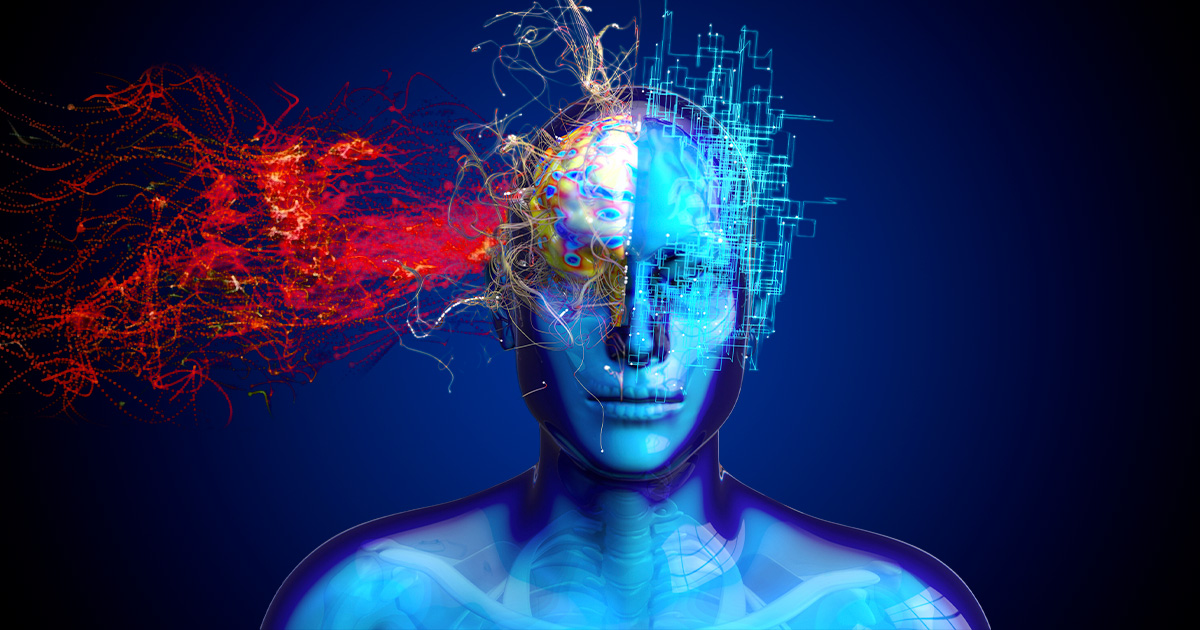Intelligence reduced to a computational algorithm
Intelligence has been predominantly associated with computational abilities, often modeled after the human brain’s analytical functions. However, this perspective raises important questions: Is intelligence solely computational, or are there other dimensions to consider? Is it possible that intelligence is multi-dimensional, encompassing a broader spectrum of human capabilities and experiences?
Attempting to distill the complexities of human intelligence into a purely computational framework may not capture the full essence of what makes intelligence truly diverse and multifaceted. The simulation of specific cognitive abilities, derived from external observations of the human brain, may yield a faster computer, but it falls short of embodying true general intelligence.
Focusing solely on the computational aspect of intelligence while neglecting other facets can lead to an imbalanced perspective. Evolutionary processes have equipped natural beings with a range of attributes beyond analytical prowess, each serving a unique purpose in maintaining equilibrium. In a universe governed by magnetic fields, any disruption, such as losing a celestial body, necessitates a realignment.
The concept of balance extends to various aspects of existence. Attempts to alter natural equilibrium, such as artificially increasing tiger population or accelerating bodily functions such as large heart (physical, not metaphysical), reveal the dangers of such interventions. Intelligence, therefore, cannot be confined to computational algorithms alone.
Beyond Computation: Exploring the Spectrum of Intelligence
Can intelligence be effectively modeled to encompass fear, accidents, human unpredictability, wisdom, social acumen, and practical intuition? Is it possible to simulate ignorance, dreams, mistakes, visualization, and experiential knowledge? Intelligence serves as the foundation for human cognition, enabling us to perceive, interpret, and respond to the world around us.
The richness of human intelligence lies in its capacity to form unexpected connections, value the importance of mistakes and acknowledge the power of ignorance. Understanding the unpredictable nature of humans involves appreciating imperfections, recognizing the psychological benefits of activities like aimless walks, the value of stillness, observation, sleep, etc.
Intelligence extends beyond mere computation to encompass experiential elements, including our sense of belonging, interactions with the world, and the catalytic effect of shared experiences. These intangible dimensions play a crucial role in shaping our understanding of the world and our place within it.
While computers excel at processing vast amounts of data and performing complex calculations, they do not possess the breadth of human intelligence. In a hypothetical scenario with unlimited computing capacity and access to all human knowledge represented as data, a computer will surpass human ability to perform analysis and produce new knowledge, a new inference, and possibly an unpredictable discovery, but it would still lack the nuanced understanding that defines our multifaceted intelligence. Such a machine is still a machine, a better machine. It is possibly an augmentation to humans as these machines have always been.
Redefining Artificial General Intelligence
It is imperative to question whether “Artificial General Intelligence (AGI),” that is simulating analytical intelligence alone, accurately emulates the multi-dimensional nature of human cognitive abilities. Perhaps a more appropriate term would be “Artificial Computational Intelligence (?),” acknowledging that computational prowess represents just one facet of a broader spectrum of human intelligence. Intelligence, in its truest form, transcends mere computation. We must broaden our perspective to encompass the myriad dimensions that constitute human cognitive abilities. By recognizing the importance of experiential, emotional, and intuitive elements, we can forge a path toward a more holistic understanding of intelligence in natural form and a realistic understanding of intelligence in artificial systems. This distinction must be clearly understood. The danger of not doing so is applying the human framework of ‘well-behaved’ into an artificial system that thinks uni-dimensionally. The proliferated version of an analytical machine seen in the prism of General Intelligence and asking it to behave a certain way while it is an analytical machine that does not know how to be ‘responsible’.




